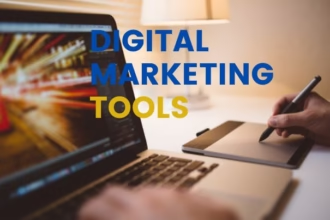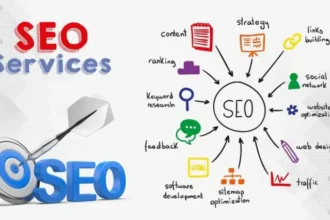Top 5 Marketing Principles That a Marketing Degree Doesn’t Teach You
Introduction
In today’s rapidly evolving business landscape, having a marketing degree can provide a strong foundation in core concepts, branding strategies, and digital marketing fundamentals. However, the real-world world of marketing often demands a different set of skills and understanding—ones that you won’t find in textbooks or classroom lectures.
Many successful marketers and business owners have learned valuable lessons through experience, trial and error, and observing market dynamics firsthand. This article explores the top five marketing principles that a traditional marketing degree doesn’t teach you but are essential for business growth, customer engagement, and building a resilient brand. Whether you’re a student, a new marketer, or a business owner, understanding these principles will enable you to implement smarter marketing tips and strategies that truly resonate.
The Gap Between Theory and Practice
While marketing degrees cover essential topics like market research, consumer behavior, and the 4Ps of marketing, they often fall short of teaching those subtle, yet vital, principles that drive real-world success. Practical marketing skills—like authentic storytelling, agility, and emotional intelligence—are often overlooked in academic settings but are crucial for creating impactful branding strategies and winning customer loyalty.
Understanding this gap is key to developing a more holistic approach to marketing. So, let’s dive into the top five marketing principles that your marketing degree likely doesn’t cover but can significantly boost your business growth and effectiveness.
Top 5 Marketing Principles Beyond the Classroom
Authenticity and Building Brand Trust
Marketing tips like catchy slogans and polished campaigns are important, but authenticity is the cornerstone of lasting relationships in the digital age. Consumers are smarter and more skeptical than ever. They want brands that are genuine and transparent.
A study found that 86% of consumers say authenticity is a key factor in deciding which brands they like and support. Building trust through authentic storytelling, honest communication, and consistent brand messaging fosters loyalty and creates a competitive advantage.
Key takeaway: Focus on creating authentic connections instead of just selling products. Demonstrate your brand’s values and be transparent about your processes and commitments.
The Power of Emotional Connection
While traditional marketing education emphasizes understanding consumer behavior, it often underplays the importance of emotional engagement. Successful marketing is not just about highlighting product features; it’s about creating emotional bonds that inspire action.
Brands like Nike and Apple excel at forging emotional connections that go beyond features, focusing on empowering stories and aspirations. Such emotional marketing tips help increase customer engagement and foster brand loyalty that lasts.
Marketing insight: Use storytelling and emotional appeals to connect with your audience on a personal level. This principle is especially critical on social media and digital marketing channels where user engagement is driven by emotion.
Real-Time Adaptability and Agility
In the dynamic world of marketing, static strategies are a thing of the past. Business growth depends heavily on your ability to adapt quickly to changing market trends, customer preferences, and technological advancements.
This principle is one that no traditional marketing degree thoroughly teaches. Modern marketers must embrace an agile mindset, continuously testing, iterating, and refining their marketing tips to stay relevant.
Key point: Use data-driven insights to make fast, informed decisions. Embrace digital marketing tools that allow for real-time feedback, and cultivate a culture of agility within your marketing team.
Data-Driven Creativity
Conventional marketing education often separates analytics from creativity—treating them as different disciplines. In reality, successful marketing today hinges on integrating data analytics with creative storytelling.
Data-driven marketing enables marketers to understand customer behavior, optimize campaigns, and improve ROI. But creative insights, emotional storytelling, and innovative ideas drive engagement and brand differentiation.
Marketing tip: Leverage analytics to identify opportunities for personalized marketing and targeted campaigns. Use these insights to fuel creative strategies—balancing data and design for maximum impact.
Customer Experience Over Product Features
Many marketers focus heavily on features and specifications, but in the age of digital marketing, customer experience (CX) reigns supreme. A great product can be overshadowed by a poor customer journey.
The key to sustainable business growth is creating memorable customer experiences at every touchpoint—whether online or offline. This includes responsive customer service, seamless purchase journeys, and post-sale engagement.
Marketing insight: Prioritize understanding the customer journey and invest in enhancing every interaction. Use customer feedback to generate powerful marketing tips and develop loyalty programs that reward long-term engagement.
How to Bridge the Gap
Understanding these principles is only the first step. The challenge lies in applying them effectively. Here are some actionable strategies:
- Continuously learn from practice: Stay updated with the latest marketing tips, tools, and industry trends.
- Invest in soft skills: Emotional intelligence, communication, and adaptability are just as vital as technical knowledge.
- Use technology smartly: Implement marketing automation, CRM systems, and data analytics to make informed decisions.
- Prioritize customer-centricity: Always think from the customer’s perspective and tailor your marketing strategies accordingly.
- Experiment and measure: Adopt an agile approach by testing new ideas and using data to analyze what works best.
Read: Creating a Winning Business Plan for 2025
Conclusion
While a marketing degree provides a valuable technical foundation, mastering these overlooked principles can propel your marketing efforts and business growth to new heights. Authenticity, emotional connection, agility, data-driven creativity, and customer experience form the backbone of modern marketing success.
Whether you’re looking to enhance your marketing skills, implement smarter marketing tips, or create a resilient brand, understanding and applying these principles will give you a competitive edge in today’s digital and connected world.
Remember: The most successful marketers aren’t just textbook learners—they are storytellers, innovators, and adaptors who truly understand their customers and the ever-changing landscape of marketing.





